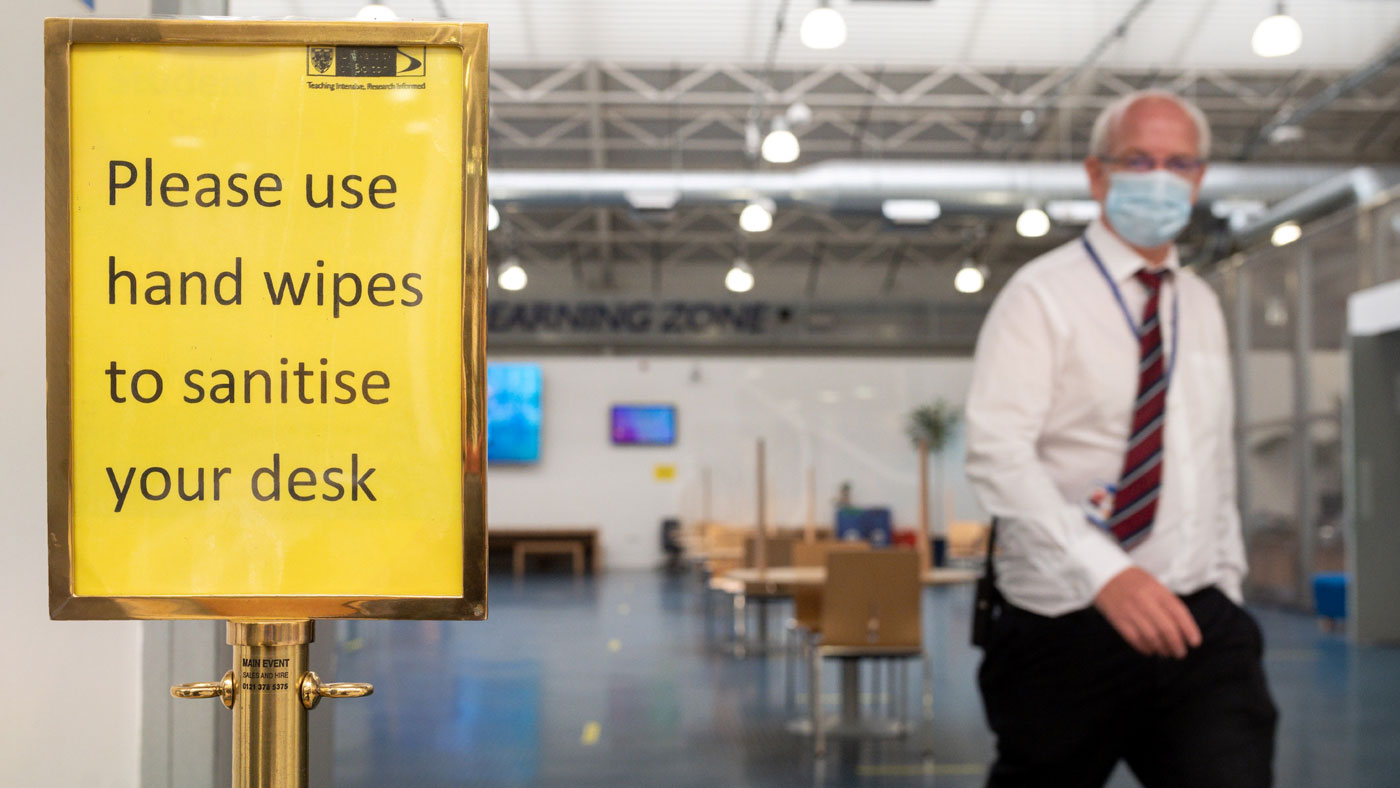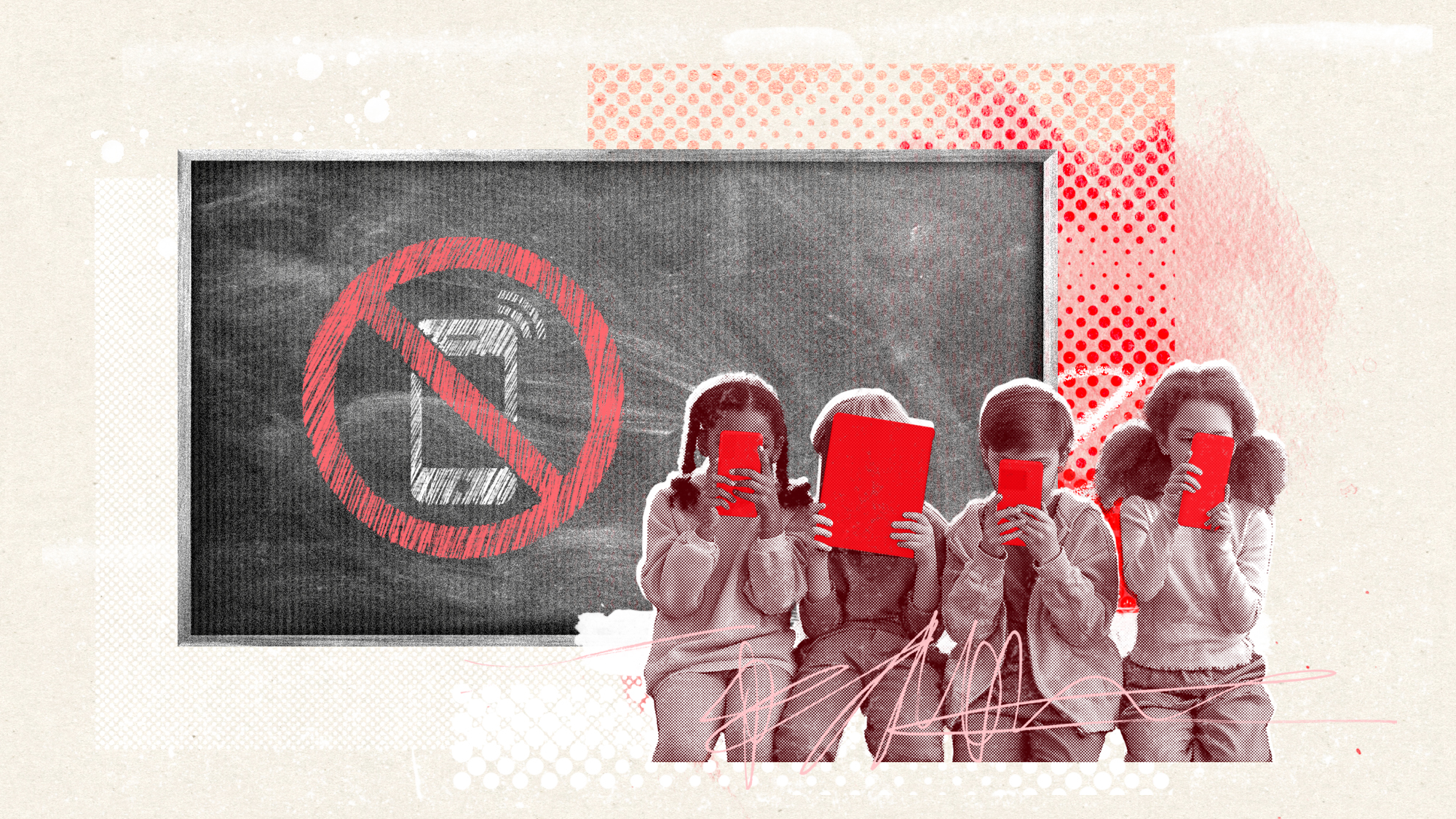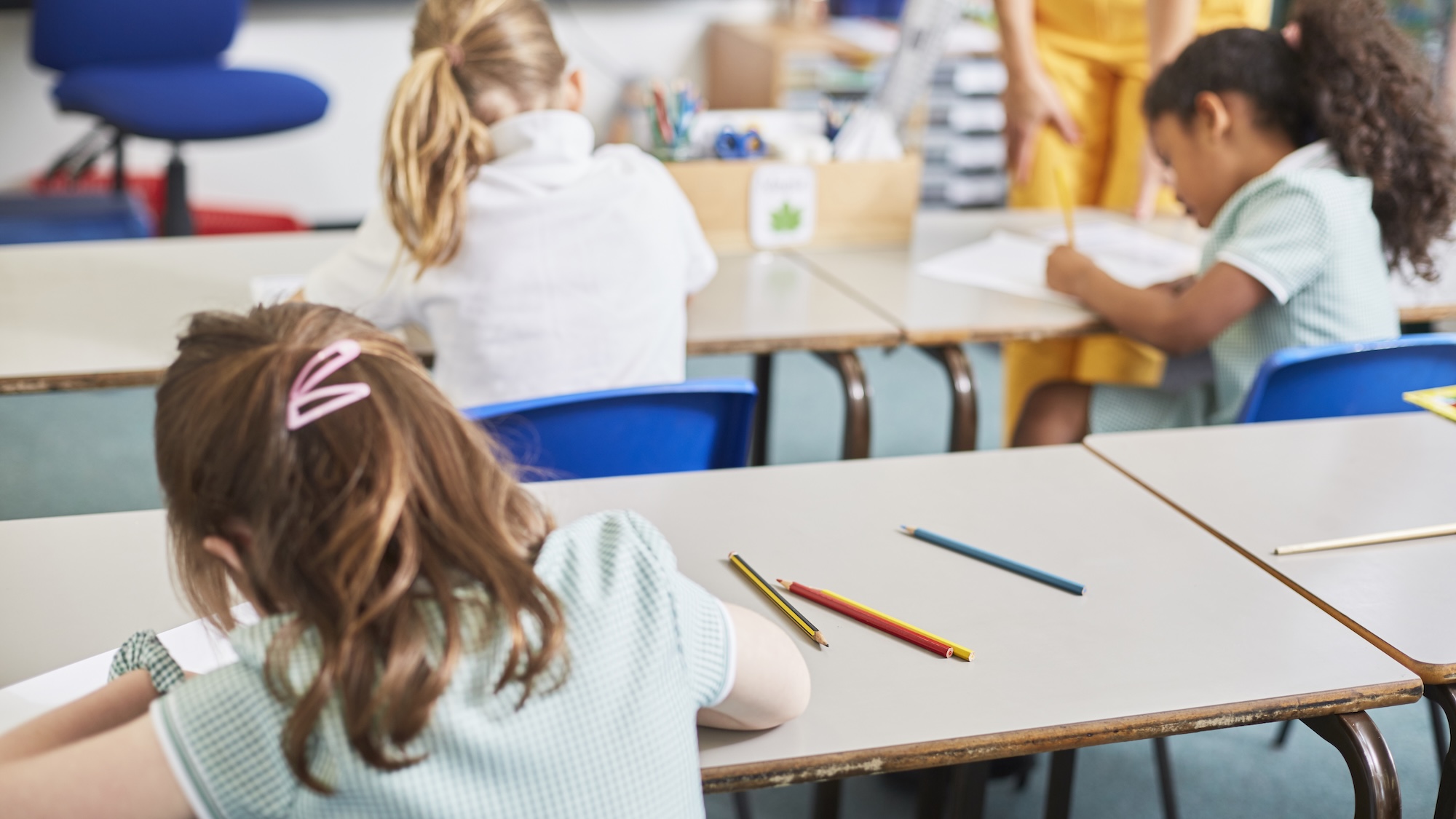Schools do not spread Covid-19, multiple studies find
Reports from Germany, Norway and the WHO conclude schoolchildren are not vector of infection

A free daily email with the biggest news stories of the day – and the best features from TheWeek.com
You are now subscribed
Your newsletter sign-up was successful
The rise in Covid-19 cases following the reopening of schools in September is probably just a coincidence of timing, four new research papers suggest.
The studies “cast doubt on the role of schools in spreading the coronavirus” and indicate that “a renewal of widespread school closures would have a limited effect on curbing Sars-Cov-2, the virus that causes Covid-19”, says the Financial Times.
Previous analysis of raw data from across Europe has painted a confusing and contradictory picture of the potential link between schools and the spread of the coronavirus.
The Week
Escape your echo chamber. Get the facts behind the news, plus analysis from multiple perspectives.

Sign up for The Week's Free Newsletters
From our morning news briefing to a weekly Good News Newsletter, get the best of The Week delivered directly to your inbox.
From our morning news briefing to a weekly Good News Newsletter, get the best of The Week delivered directly to your inbox.
A total of 52 countries, “including France and Spain, actually saw infection rates rise during the holidays”, according to The Telegraph. “Some, such as Croatia, have seen cases fall after reopening schools. Others, like Hungary and Great Britain, have seen a rise.”
However, newly published reports have found no evidence that schools have any significant impact on infection rates. The latest evidence comprises:
- a study conducted by the Norwegian National Institute of Public Health which found that infection rarely spreads from child to child, and that “the most common route of transmission to children and pupils is from adults in their household”
- a report from Germany’s Institute of Labor Economics, which says that “school re-openings in Germany under strict hygiene measures combined with quarantine and containment measures have not increased the number of newly confirmed Sars-CoV-2 infections”
- two reviews of data from countries across the world, conducted by the World Health Organization and the European Centre for Disease Prevention and Control, which both “concluded that most children do not develop symptoms and there is little evidence of transmission in schools”, says the FT.
Nevertheless, says The Guardian, “more than 400,000 children in England were off school last week for coronavirus-related reasons”, and some schools have been forced to close.
Wales and Scotland have also been wrestling with the problem of outbreaks in schools.
A free daily email with the biggest news stories of the day – and the best features from TheWeek.com
The Welsh government has announced that older pupils will not return to classes during the country’s two-week “firebreak” lockdown, which begins on Friday. But “Scottish First Minister Nicola Sturgeon has pledged to do everything in her power to keep schools open” north of the border, the BBC reports.
Holden Frith is The Week’s digital director. He also makes regular appearances on “The Week Unwrapped”, speaking about subjects as diverse as vaccine development and bionic bomb-sniffing locusts. He joined The Week in 2013, spending five years editing the magazine’s website. Before that, he was deputy digital editor at The Sunday Times. He has also been TheTimes.co.uk’s technology editor and the launch editor of Wired magazine’s UK website. Holden has worked in journalism for nearly two decades, having started his professional career while completing an English literature degree at Cambridge University. He followed that with a master’s degree in journalism from Northwestern University in Chicago. A keen photographer, he also writes travel features whenever he gets the chance.
-
 The Week Unwrapped: Do the Freemasons have too much sway in the police force?
The Week Unwrapped: Do the Freemasons have too much sway in the police force?Podcast Plus, what does the growing popularity of prediction markets mean for the future? And why are UK film and TV workers struggling?
-
 Properties of the week: pretty thatched cottages
Properties of the week: pretty thatched cottagesThe Week Recommends Featuring homes in West Sussex, Dorset and Suffolk
-
 The week’s best photos
The week’s best photosIn Pictures An explosive meal, a carnival of joy, and more
-
 The pros and cons of banning cellphones in classrooms
The pros and cons of banning cellphones in classroomsPros and cons The devices could be major distractions
-
 School phone bans: Why they're spreading
School phone bans: Why they're spreadingFeature 17 states are imposing all-day phone bans in schools
-
 Schools: The return of a dreaded fitness test
Schools: The return of a dreaded fitness testFeature Donald Trump is bringing the Presidential Fitness Test back to classrooms nationwide
-
 Send reforms: government's battle over special educational needs
Send reforms: government's battle over special educational needsThe Explainer Current system in 'crisis' but parents fear overhaul will leave many young people behind
-
 Education: Can public schools be religious?
Education: Can public schools be religious?Feature A Supreme Court seems ready to rule in favor of religious charter schools in Oklahoma, which could reshape public education
-
 America's academic brain drain has begun
America's academic brain drain has begunIN THE SPOTLIGHT As the Trump administration targets universities and teachers, educators are eying greener academic pastures elsewhere — and other nations are starting to take notice
-
 Schools' Send crisis: how can it be fixed?
Schools' Send crisis: how can it be fixed?Today's Big Question Government urged to reform support for children with special educational needs and disabilities and save councils from bankruptcy
-
 Unschooling: the radical education trend raising eyebrows
Unschooling: the radical education trend raising eyebrowsUnder the radar Some parents are letting their children lead their education